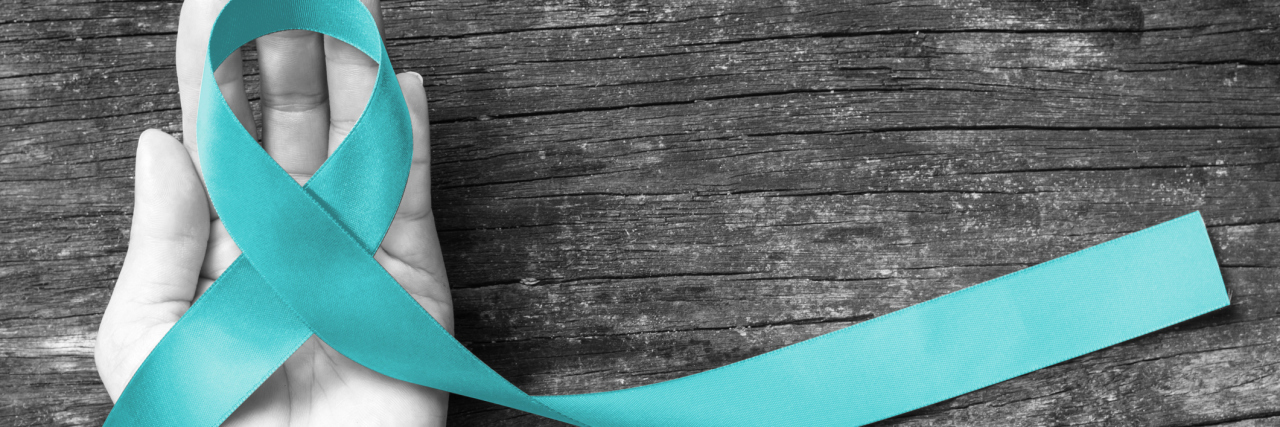Ovarian Cancer Awareness Month is September in the U.S. Many other countries also acknowledge this disease with a specific day and/or month dedicated to it. World Ovarian Cancer Day is May 8 each year.
You might be a little weary about another “awareness month.” Let me explain why ovarian cancer awareness is important (every day).
It’s not an “old woman’s disease” as it’s commonly thought of. I was 19 at diagnosis, but I started getting sick in my senior year of high school. There are stories of babies, toddlers, preteens, teens… you get my point. Women of any age, with ovaries, could be at risk for ovarian cancer.
Ovarian cancer is less common than some others, with a higher mortality rate, and less funding, education, research and overall awareness of the disease exist. Many physicians won’t recognize the signs, leading to ignored symptoms, misdiagnoses and/or delayed treatment. There are limited tests available to detect ovarian cancer. Unless you or your physician recognize the warning signs, you’re not likely to receive an ultrasound and CA-125 blood test to check for the potential of ovarian cancer. Oh, and if you were wondering, PAP smears do not detect ovarian cancer.
With common symptoms including bloating, increased urination, constipation, cramps, abnormal bleeding and fatigue, you may be wrongly diagnosed with irritable bowel syndrome or PCOS.
Less common symptoms, such as leg pain, lower back pain, sudden-onset lactose intolerance, nausea, weight loss and painful sex may lead you to believe you have several health concerns happening at once. Lactose intolerance can develop later in life. Back and leg pain could be blamed on working hard out in the yard. There are a million ways to explain away symptoms like these, but not many of us will consider ovarian cancer if symptoms persist for several weeks.
A woman’s risk of getting ovarian cancer during her lifetime is about 1 in 78. Her lifetime chance of dying from ovarian cancer is about 1 in 108. This is due, in part, to the fact that most are diagnosed in the advanced stages of the disease because of misdiagnosis or ignoring symptoms.
Please share this knowledge with your loved ones and wear teal in solidarity and support of those fighting ovarian cancer. Knowledge is the key to saving lives with ovarian cancer, because “It Whispers, So Listen.”
Getty photo by Chinnapong

